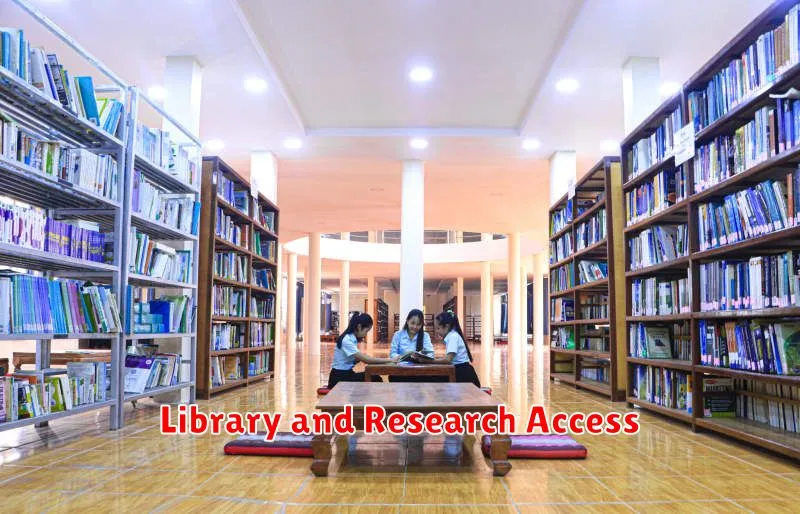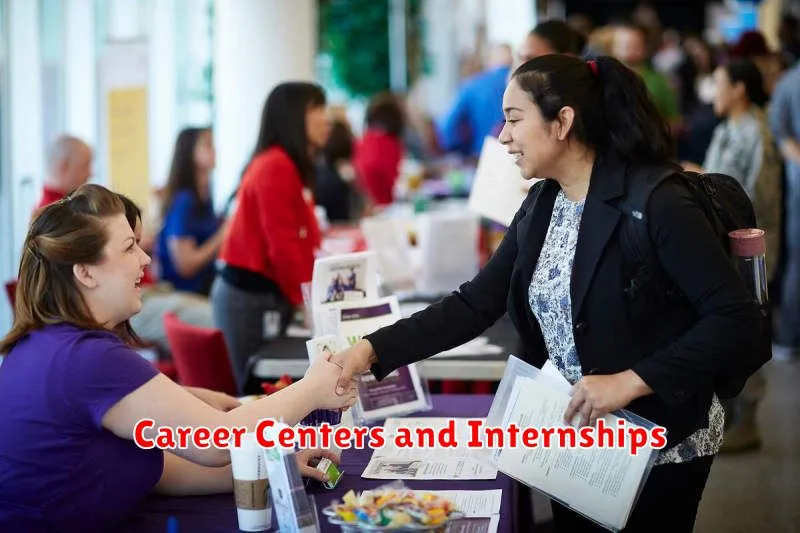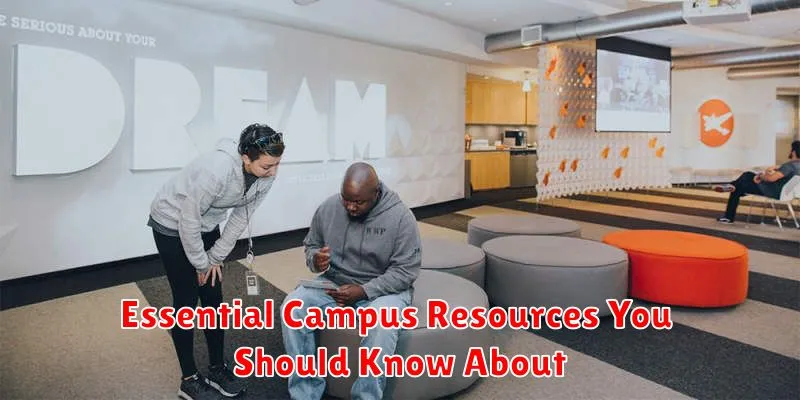Starting college can be overwhelming, especially navigating a new environment and accessing the support you need. Knowing about the essential campus resources available can make a significant difference in your academic success, personal well-being, and overall college experience. This article highlights the key campus resources you should be aware of to thrive during your time in college.
From academic support like tutoring and writing centers to health and wellness services like counseling and health clinics, understanding these essential campus resources is crucial. We’ll explore the various services offered, how to access them, and why they are vital for a successful and fulfilling college journey. Familiarizing yourself with these campus resources can empower you to make the most of your college experience and achieve your academic and personal goals.
Why Campus Support Services Matter
College life presents unique challenges, both academic and personal. Campus support services exist to help students navigate these challenges and thrive during their time in higher education. These services contribute significantly to student success and overall well-being.
Academically, support services like tutoring, writing centers, and academic advising can help students improve their grades, develop effective study habits, and choose the right courses for their academic goals. They provide personalized assistance and guidance, addressing individual learning needs and challenges.
Personally, campus resources such as counseling services, health centers, and student activity groups offer support for mental and physical well-being. They provide a safe space for students to address personal issues, manage stress, and build connections with their peers. This fosters a sense of belonging and promotes a positive campus experience.
Ultimately, utilizing campus support services empowers students to achieve their full potential, both inside and outside the classroom. These resources are an invaluable part of the college experience and contribute to student success, well-being, and personal growth.
Academic Advising and Mentorship
Academic advisors are crucial resources for students throughout their college journey. They provide guidance on course selection, degree requirements, academic policies, and overall academic planning. Meeting with your advisor regularly is strongly recommended.
Mentorship programs, while sometimes separate from academic advising, offer valuable support and insights. Mentors, who are often faculty members, alumni, or professionals in your field of interest, can provide personalized advice, career guidance, and networking opportunities. They can offer a unique perspective and help you navigate the challenges and opportunities of college life.
Library and Research Access

The campus library offers a wealth of resources essential for academic success. Extensive collections of books, journals, and periodicals are available both physically and digitally. Take advantage of these resources to support your research and coursework.
Trained librarians are available to assist you with research strategies, database navigation, and locating specific materials. Don’t hesitate to ask for help – they are a valuable resource.
Beyond physical materials, the library provides access to digital databases covering a wide range of subjects. These databases often contain scholarly articles, research papers, and other specialized information crucial for in-depth study.
Quiet study areas, computer labs, and collaborative workspaces within the library provide productive environments for individual and group study. Familiarize yourself with the library’s layout and resources to maximize your academic pursuits.
Student Health and Counseling Services
Student health and counseling services are crucial campus resources dedicated to supporting students’ physical and mental well-being. These services offer a range of support, from medical care for illnesses and injuries to mental health counseling for stress, anxiety, and other concerns.
Health services typically provide routine check-ups, vaccinations, and treatment for common ailments. Some campuses may also offer specialized care like allergy treatment or sports medicine.
Counseling services offer confidential support for students facing personal challenges. They can help students develop coping mechanisms, manage stress, and improve their overall mental health. These services often provide individual and group counseling sessions, as well as workshops and resources on various mental health topics.
Career Centers and Internships

Career centers are invaluable resources for students and alumni. They offer a wide range of services designed to help you navigate your career path, from choosing a major to landing your dream job.
These centers often provide career counseling, where you can discuss your career goals and receive personalized guidance. They also conduct resume and cover letter reviews, helping you create compelling application materials. Mock interviews are another valuable service, allowing you to practice your interviewing skills and receive constructive feedback.
Many career centers maintain extensive job boards, listing opportunities specifically targeted towards students and alumni. They also frequently host career fairs and networking events, providing opportunities to connect with potential employers.
Internships are crucial for gaining practical experience and building your professional network. Career centers can assist you in finding internships that align with your interests and career goals. They can also provide guidance on how to make the most of your internship experience.
Clubs, Sports, and Activities
Engaging in extracurricular activities is a vital aspect of the college experience. Joining clubs, participating in sports, or pursuing other activities enhances personal growth, fosters new friendships, and develops valuable skills.
Your campus likely offers a diverse range of options, from academic clubs focused on specific subjects, to sports teams catering to various skill levels, to hobby-based groups like photography or chess clubs. Active involvement can enrich your resume, provide leadership opportunities, and create a well-rounded college experience.
Explore your institution’s website or student activity center for a complete list of available clubs, sports, and activities. Attend introductory meetings or fairs to learn more about organizations that pique your interest. Don’t hesitate to try something new; college is a great time to discover passions and develop new talents.
Housing and Dining Facilities
On-campus housing offers a variety of options to suit different needs and preferences. From traditional dormitory style rooms to suite-style living and apartment complexes, students can find a comfortable living space. Information regarding housing applications, deadlines, and costs can typically be found on the university’s housing portal.
Meal plans are often associated with on-campus housing and provide convenient access to dining halls and sometimes on-campus restaurants or cafes. These plans usually offer a range of options, from unlimited access to a set number of meals per week or semester. Be sure to explore the different meal plan choices and associated costs to determine the best fit for your dietary needs and budget.
Residential life programs and resident advisors (RAs) are key resources for students living on campus. RAs provide support, organize events, and foster a sense of community within the residence halls. Take advantage of these resources to enhance your residential experience.

